Welsh elections: How independence versus abolition may affect vote
- Published
The number of people attending marches and polls suggest support for independence is on the rise.
Health, education, jobs and transport, are all the kinds of issues that normally dominate any election.
However, as we prepare to head to the polls on 6 May for the Senedd ballot, the constitutional future of Wales is now also under the spotlight.
The growth in support for pro-independence groups, such as Yes Cymru and the emergence in parties who want to abolish the Welsh Parliament, has left people divided.
Political expert Prof Laura McAllister said the poll would mostly be a "Covid election", but the differences between the lockdowns in England and Wales would mean who we are governed by might also be at the front of voters' minds.
"Subconsciously, this is a constitutional election," she said.
"I think people have had to think about where they live, the border has never been so obvious between England and Wales because of differential policies."
"Whether you like that or not, it will have had an impact on how you feel about politics.
"And that emotional appeal will play a part in the election and of course that is linked to the constitution."
What's the difference between the Welsh Parliament and the Welsh government?
While politicians are setting out their pledges for the future of Wales, what is the view in our towns, villages and cities, ahead of the vote?
I set out to talk to potential voters about what they think should happen - should Wales have a referendum, or should the Senedd be scrapped?
Scrap it or give it more powers?
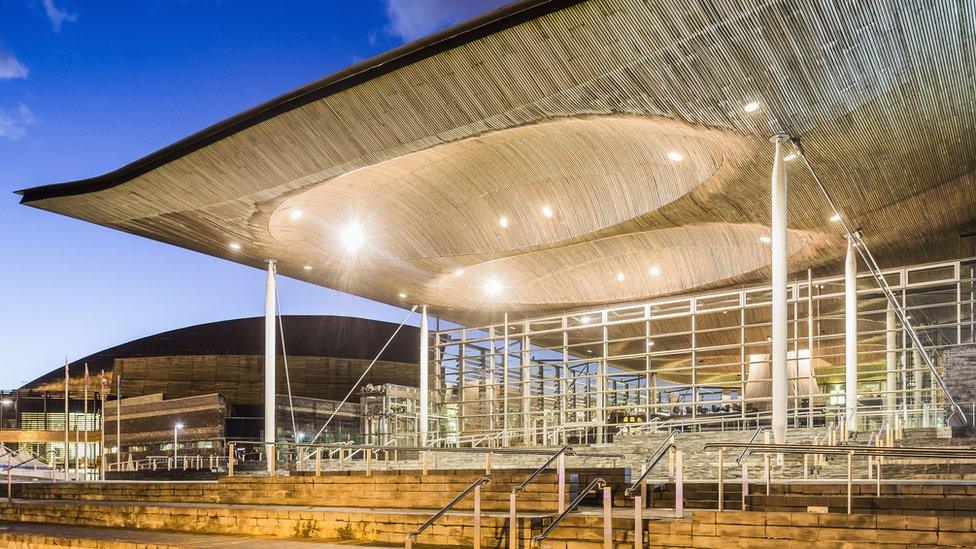
Political experts have predicted the Abolish the Welsh Assembly Party could win seats at the vote
With the shops having just re-opened following lockdown, Ystradgynlais high street was busy when I arrived before lunch.
The Powys town, on the outskirts of the Brecon Beacons, prides itself on its row of independent shops.
It feels rural, but there is also a proud history of industry, which means it is also a typical valleys town in many ways.
Outside the bakery, a man in his 60s waiting for his wife, said he thought the Welsh Parliament should be scrapped.
"I think we should get rid of it, and have one central government up in London looking after us all and there will be more money for us," he said.
But his wife disagreed: "I'm happy with the situation now. We have a little bit of independence but we can also rely more on Westminster as well".

WALES ELECTION: THE BASICS
What's happening? On 6 May, people will vote to elect 60 Members of the Senedd (MSs). The party that can command the support of a majority of MSs will form the Welsh government. Find out more here.
What powers does the Senedd have? MSs pass laws on aspects of life in Wales such as health, education and transport - and have some tax powers.
Who can vote? Anyone who lives in Wales, is registered to vote and aged 16 or over on 6 May is eligible. You can register to vote online, external.

James Hyett, a young man from the town, said: "We've got our own culture and we don't want to be pushed aside.
"That's why I want independence."
But for former miner, Daniel Thomas, the union was important.
"Keep the Senedd," Mr Thomas, aged in his 90s, said.
"I am happy for the country to be as it is, a United Kingdom".
'Wait and see what happens'

Shops in Ruthin have only just reopened following months of lockdown measures
At the other end of the country, Ruthin was once witness to Owain Glyndwr's rebellion, now it is a sleepy countryside town.
Do some here in 2021 want to see a constitutional rebellion in Wales?
According to one elderly farmer, "keep the powers they have, but maybe it's a good thing to have a little more".
"I'm not sure about independence", one lady said.
"I'm not sure if I agree with that, but it would be nice to have more power."
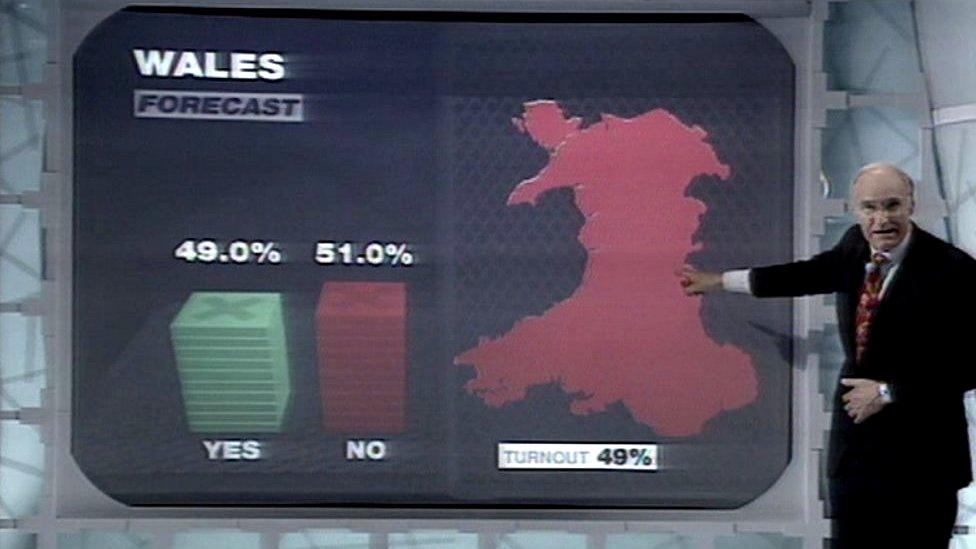
Peter Snow reporting on the 1997 Wales referendum results
On his lunch hour, one man in his 30s observed: "I think Wales should go independent eventually, but we'll have to wait and see what happens".
In a hurry to get back to her car, not wanting to stop for a chat, a woman in her 70s shouted back: "I support independence".
While some want more power, and others less, others are happy with the status quo.
"No more power, I think. It's fine as it is," said one a man, also aged in his 70s.
What do the polls say?
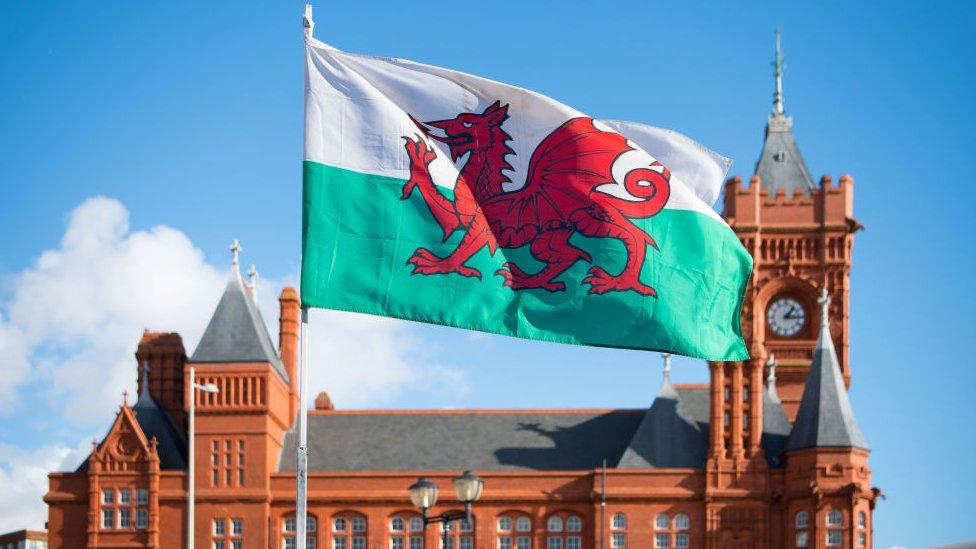
In Wales, independence is still a minority view, but a campaign aimed at making it a reality has gained momentum in the past year
While these are the views of some shoppers in two communities across Wales, what do the polls say ahead of the vote?
According to a recent BBC and ICM poll, support for independence has grown from 11% last year, to 14% this year.
Meanwhile, support for abolishing the Senedd had also risen, from 14 to 15%.
But the polls suggest the majority of voters prefer the centre ground, favouring either the status quo or more powers for Wales within the UK.
But for many, Prof McAllister said, the issue would be entirely subconscious, impacted by the way Covid-1 has been handled in different parts of the UK.
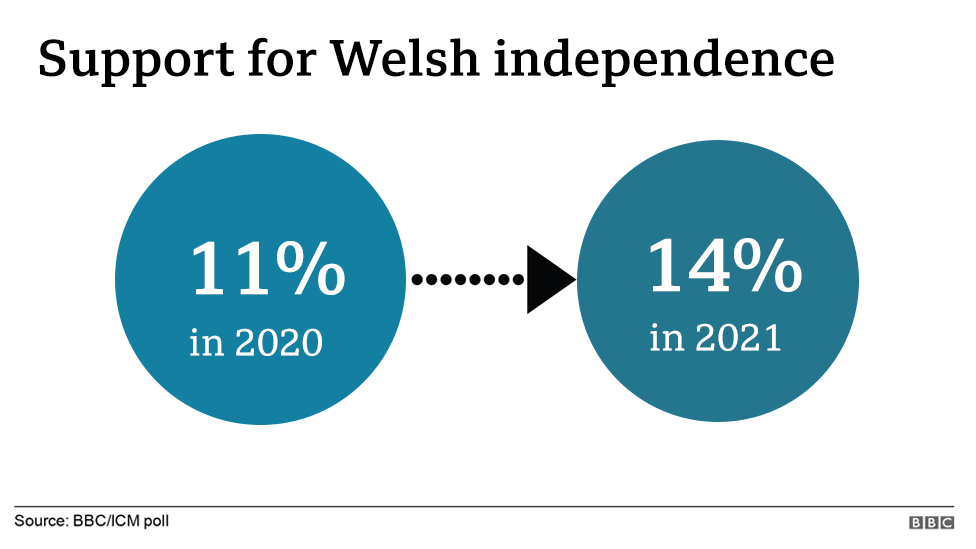
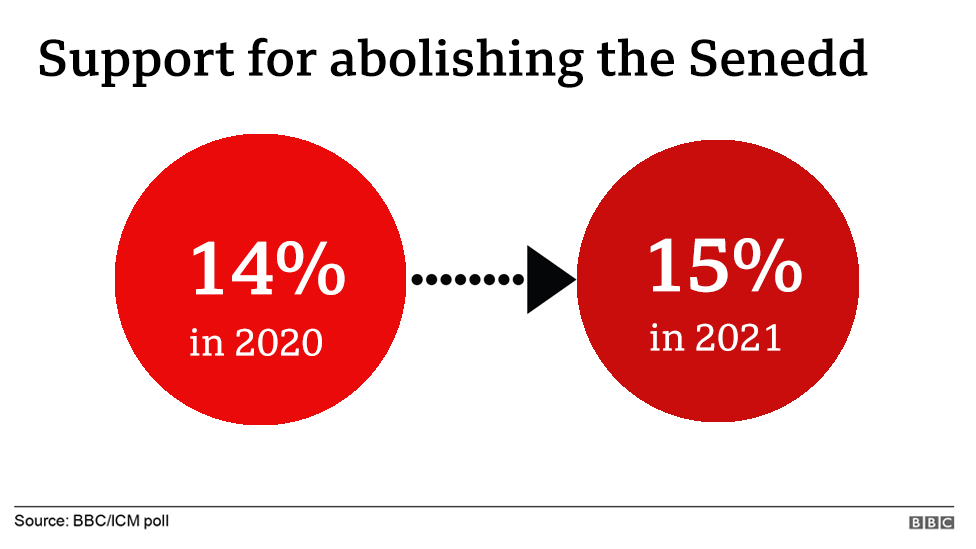
From the heads of the valleys, to the Vale of Clwyd, the pandemic has touched all communities.
The differences in the rules between England and Wales have highlighted devolution and the powers of the Welsh government.
However, will this be enough to change the direction of politics in Wales? I guess we will see when the polls close.

POLICY GUIDE: Who should I vote for?
FIRST TIME: Will 16-year-olds vote?

- Published2 February 2021
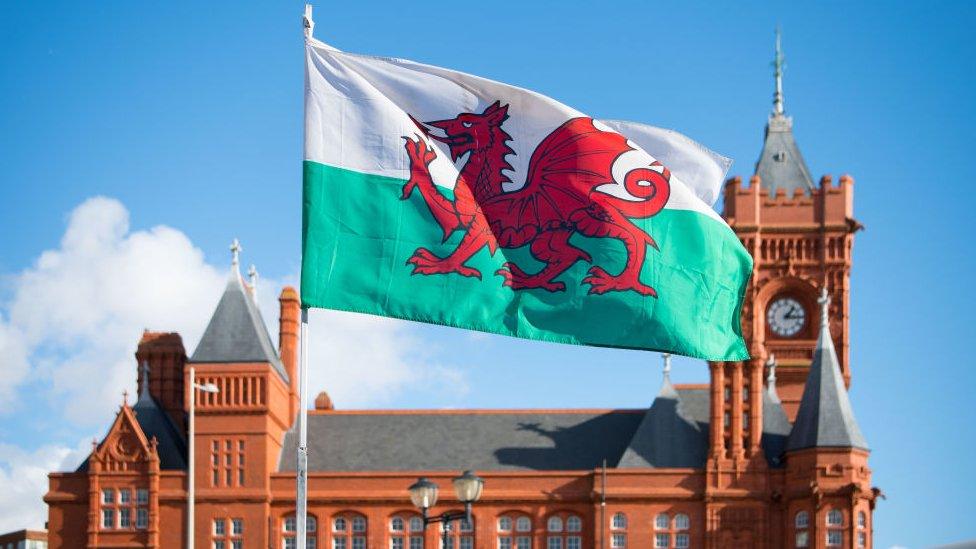
- Published15 April 2021
